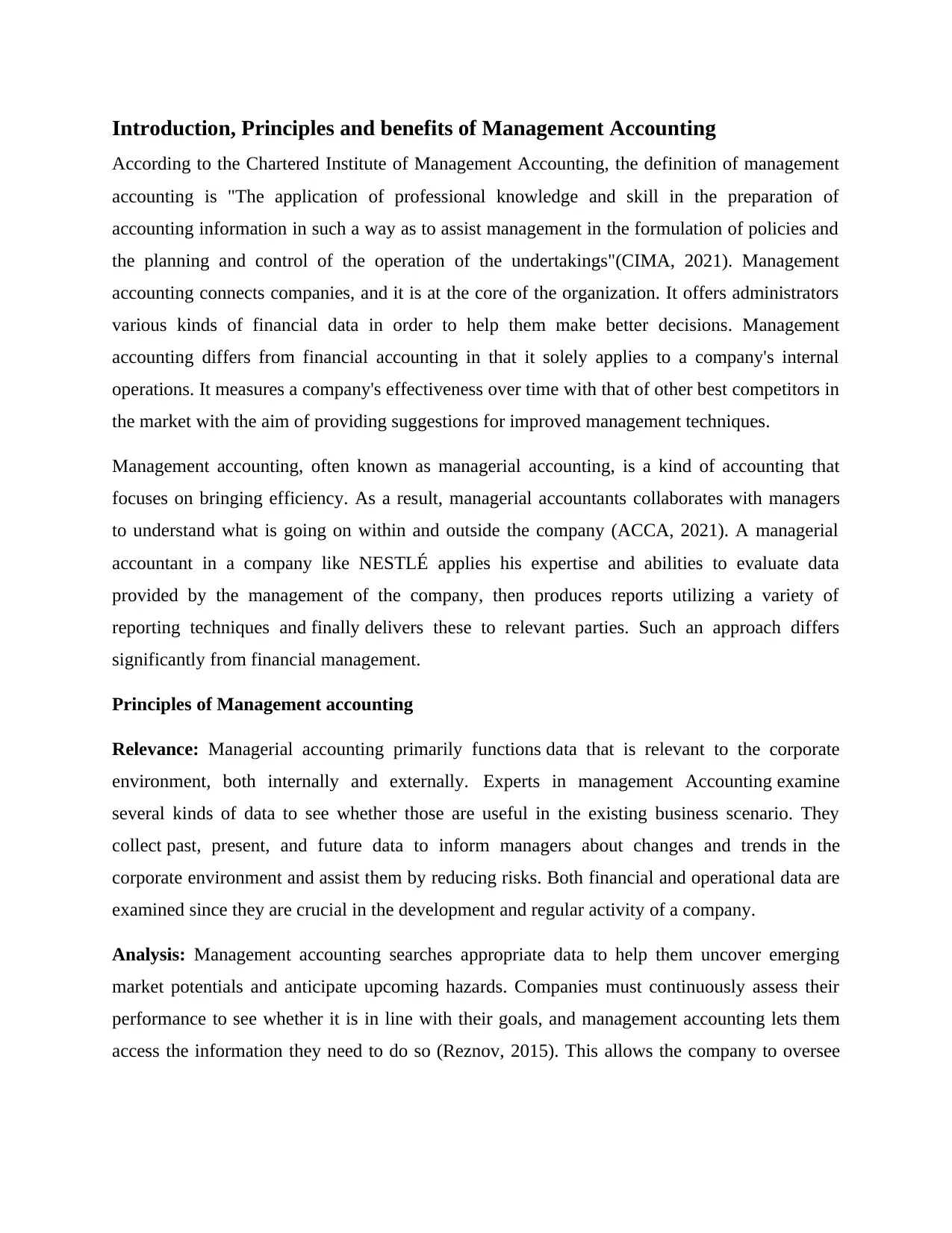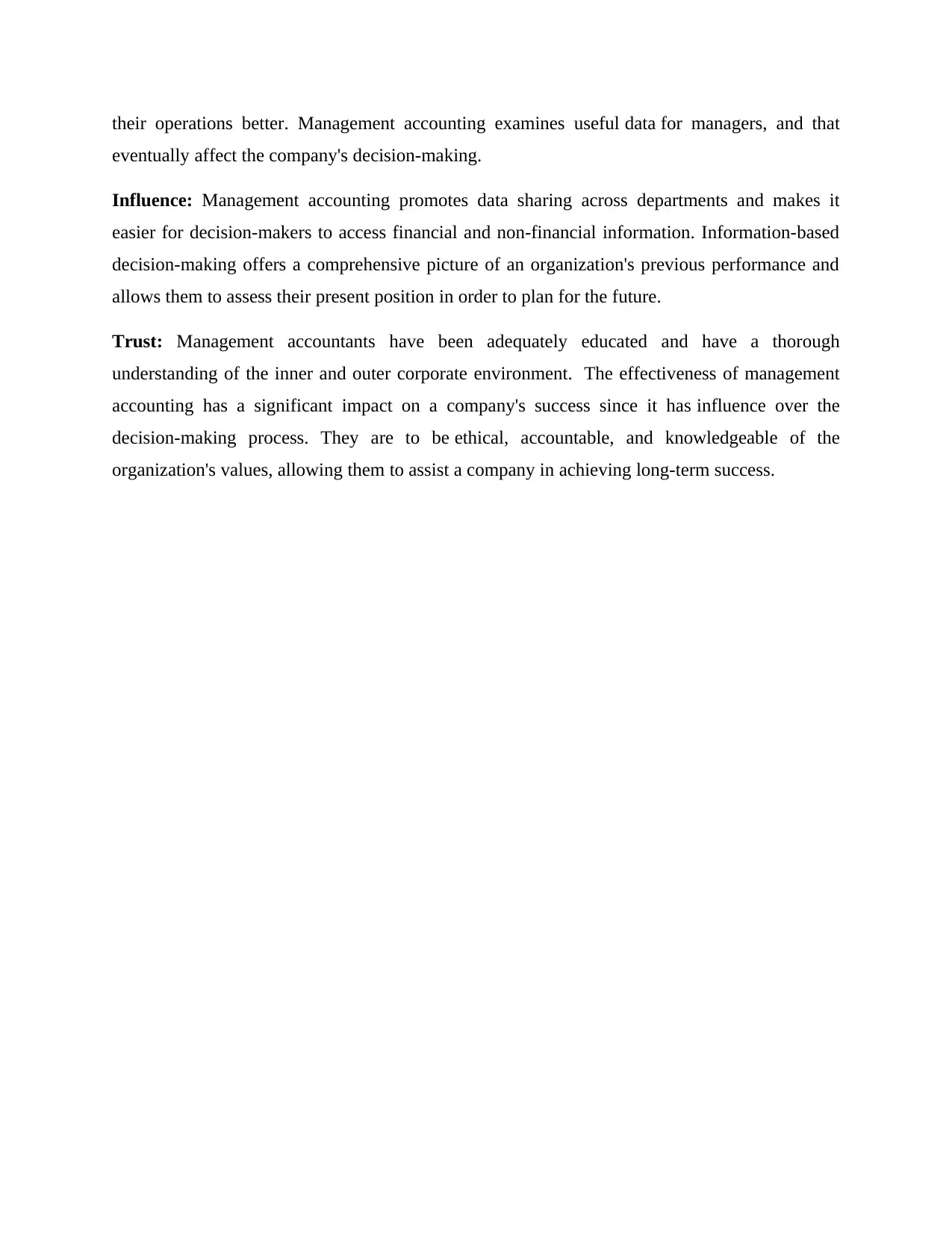Report on Principles and Benefits of Management Accounting
VerifiedAdded on 2023/01/23
|2
|537
|496
Report
AI Summary
This report delves into the realm of management accounting, elucidating its principles and benefits. It begins by defining management accounting and differentiating it from financial accounting, emphasizing its role in internal decision-making and performance evaluation. The report highlights key principles such as relevance, analysis, influence, and trust, and explains how these principles guide the collection and interpretation of data to support managerial decisions. The report also examines how management accounting helps in identifying market opportunities, anticipating risks, and promoting data sharing across departments. It emphasizes the importance of ethical practices and the impact of management accounting on a company's success, making it a valuable resource for understanding the role of management accounting in business strategy and operations.
1 out of 2








![[object Object]](/_next/static/media/star-bottom.7253800d.svg)